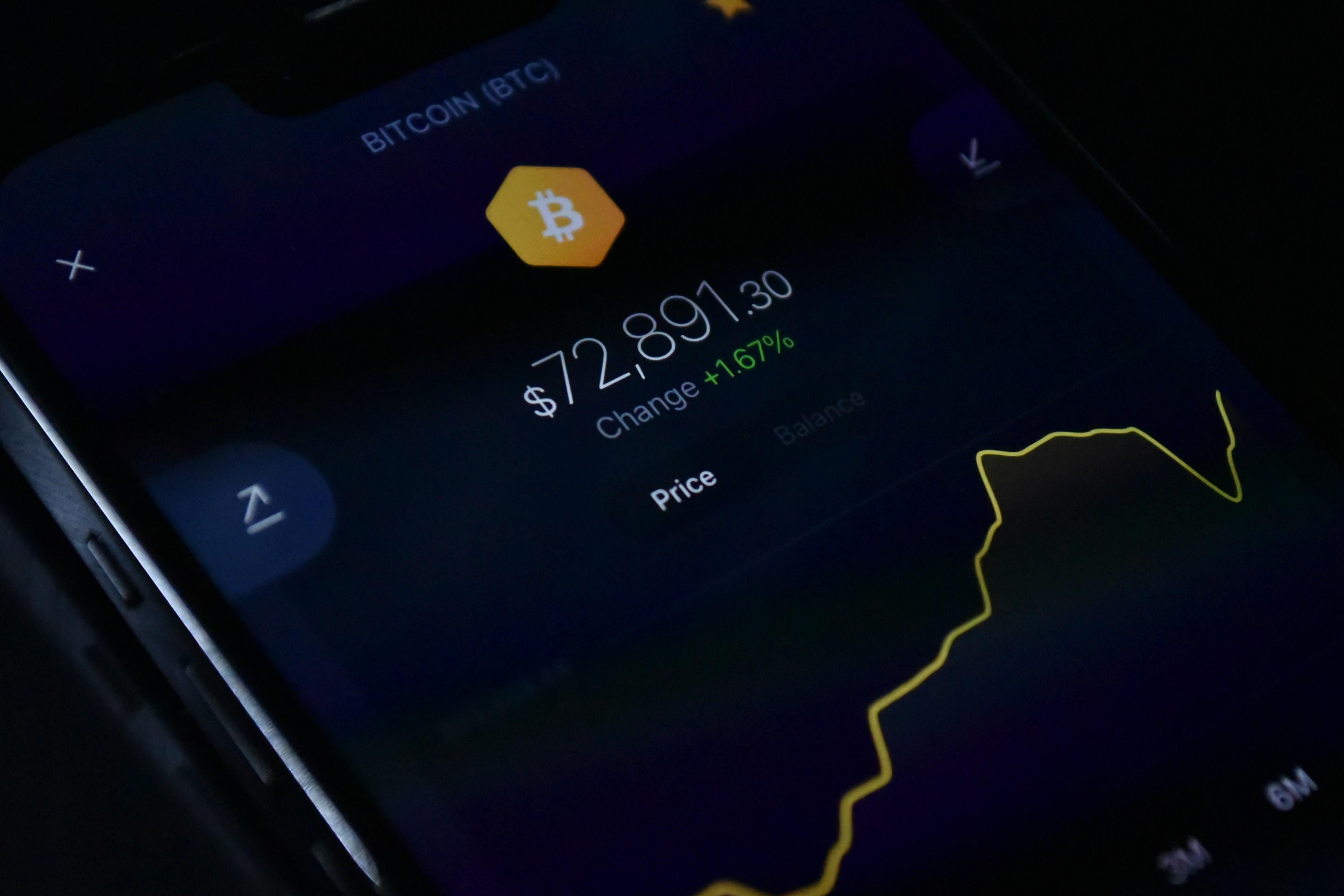How Are Smart Wallets Powering the Evolution of Personal Finance?

The financial landscape is changing at an unprecedented pace. Traditional methods of managing money—cash, cards, and basic banking apps—are gradually giving way to smarter, digital solutions. At the forefront of this transformation are smart wallets. These tools are no longer just digital holders of currency; they are evolving into comprehensive financial assistants, helping individuals take control of their money, make informed decisions, and optimize their wealth. This article explores how smart wallets are revolutionizing personal finance, their key features, advantages, and what the future holds.
The Rise of Digital Wallets in Modern Finance
Over the past decade, digital wallets have become increasingly popular. Initially, they served as simple replacements for physical wallets, allowing users to store debit or credit card information and make online payments conveniently. However, as technology advanced, wallets began to incorporate intelligence, automation, and security features, giving birth to the concept of smart wallets.
Smart wallets are designed to provide a seamless financial experience. They integrate banking services, budgeting tools, digital asset management, and personalized insights. By combining convenience with analytics, these wallets empower users to manage their finances efficiently, reducing dependence on traditional banks or paper-based systems.
The growth of digital payments, cryptocurrency adoption, and mobile banking has accelerated the demand for smart wallets. Today, they cater not only to everyday financial transactions but also to broader financial planning and investment needs.
Key Features of Smart Wallets
Enhanced Security and Privacy
One of the most significant advantages of smart wallets is security. These wallets employ advanced encryption methods to protect users' funds and sensitive information. Biometric authentication, such as fingerprint or facial recognition, ensures that only authorized users can access the wallet. Many smart wallets also incorporate two-factor authentication (2FA) and real-time fraud monitoring to detect suspicious activity, offering a level of security far beyond what traditional wallets can provide.
Privacy is another critical feature. Unlike some conventional banking systems, smart wallets can offer greater control over data sharing. Users can choose which financial data to share with third-party services, maintaining confidentiality while still accessing advanced features.
Real-Time Transaction Tracking
Smart wallets provide users with instant notifications for every transaction. This real-time tracking allows individuals to monitor spending patterns, detect fraudulent activity, and manage cash flow effectively. By offering detailed insights into where and how money is spent, smart wallets enable better financial decision-making. Users can categorize expenses, track recurring payments, and even receive alerts when they are close to overspending.
Integration With Multiple Financial Platforms
Modern smart wallets can connect seamlessly to bank accounts, credit cards, investment platforms, and cryptocurrencies. This integration allows users to view their complete financial picture in one place. For instance, a smart wallet can display bank balances, investment returns, and digital currency holdings simultaneously, providing a holistic view of personal finances.
Cross-platform integration also facilitates easy transfers between different accounts or assets. Users can convert fiat currency into cryptocurrency, pay bills, and send money internationally without switching between multiple apps, making money management more efficient and streamlined.
Budgeting and Financial Insights
Many smart wallets go beyond simple transaction tracking to offer budgeting and financial planning tools. Artificial intelligence and machine learning algorithms analyze spending patterns and provide personalized recommendations. For example, a wallet can suggest areas where a user can save money, alert them about high spending categories, or recommend investment opportunities based on financial behavior.
This level of automation and insight helps users make smarter financial decisions, plan for future expenses, and achieve financial goals. In essence, smart wallets function as personal financial advisors that are accessible 24/7.
Cryptocurrency Support
With the rise of digital currencies, many smart wallets now include support for cryptocurrencies. Users can store, send, and receive various digital assets within a single platform. Some wallets even support decentralized finance (DeFi) applications, allowing users to lend, borrow, or stake cryptocurrencies directly from their wallets.
Cryptocurrency-enabled smart wallets open up opportunities for wealth creation and global transactions without relying on traditional financial intermediaries. They also empower users to explore innovative financial products and services that were previously inaccessible to everyday consumers.
Contactless Payments and Convenience
The convenience of smart wallets extends to contactless payments. Using Near Field Communication (NFC) or QR codes, users can make payments in physical stores without cash or cards. This reduces dependency on physical payment methods while improving speed and convenience.
Additionally, many smart wallets are mobile-first, meaning they can be accessed and managed entirely from a smartphone. This portability ensures that financial management is always within reach, whether at home, at work, or on the go.
Advantages of Using Smart Wallets
Financial Control and Awareness
Smart wallets give users a higher level of control over their finances. With instant updates, detailed reports, and spending alerts, users gain a clear understanding of their financial health. They can make informed decisions, avoid overspending, and prioritize saving and investing.
Enhanced Security Reducing Financial Risks
By integrating biometric authentication, encryption, and fraud monitoring, smart wallets significantly reduce the risk of unauthorized transactions. Users no longer have to worry about losing cash or being vulnerable to card theft, making financial management safer and more reliable.
Encouragement for Savings and Investments
Smart wallets often incorporate tools that encourage users to save and invest. Automated saving plans, round-up features (where purchases are rounded up to save spare change), and investment suggestions help users build wealth gradually. Over time, this fosters better financial habits and long-term planning.
Access to Global Financial Opportunities
Smart wallets provide access to global financial systems. Users can send money internationally, engage with cryptocurrencies, or invest in foreign assets without complex banking procedures. This globalization of finance democratizes access to opportunities, enabling individuals to grow their wealth beyond local constraints.
Convenience and Seamless Experience
By centralizing multiple financial services, smart wallets simplify money management. Users can pay bills, transfer money, manage multiple accounts, and track investments—all from a single interface. This convenience saves time and reduces the friction associated with traditional financial management.
The Future of Smart Wallets in Personal Finance
The future of personal finance is likely to be dominated by smart wallets that are even more intelligent, intuitive, and interconnected. As artificial intelligence continues to evolve, wallets may provide predictive financial advice, helping users anticipate expenses, optimize investment returns, and avoid financial pitfalls.
Blockchain technology will further enhance security and transparency, particularly for cryptocurrency transactions. Smart wallets may also integrate with emerging technologies like voice recognition, augmented reality, and IoT devices, creating a truly seamless financial ecosystem where money management is proactive, personalized, and effortless.
In addition, smart wallets may play a key role in financial inclusion. By providing secure and accessible financial tools, individuals in underbanked or remote regions can participate in global financial markets, access credit, and save securely, narrowing the financial gap and empowering communities worldwide.
Conclusion
Smart wallets are redefining the way individuals interact with money. By combining convenience, security, real-time insights, and global financial access, they empower users to take control of their personal finances like never before. The integration of features such as budgeting, cryptocurrency management, and investment tracking makes them indispensable tools for modern financial planning.
For businesses and individuals looking to leverage this technology, investing in Cryptocurrency Wallet Development can be a strategic move. Companies like WisewayTec specialize in building secure, feature-rich smart wallets that cater to both everyday financial needs and advanced digital asset management, making them a trusted partner in the evolution of personal finance.
Frequently Asked Questions (FAQs)
How is a smart wallet different from a traditional digital wallet?
Smart wallets go beyond storing payment information. They provide financial insights, budgeting tools, investment tracking, and enhanced security, making them more than just a payment method.
Can smart wallets store cryptocurrencies safely?
Yes. Modern smart wallets offer encrypted storage, private key management, and two-factor authentication, ensuring that cryptocurrencies are secure from theft or unauthorized access.
Are smart wallets suitable for global transactions?
Absolutely. Many smart wallets support international transfers, multiple currencies, and cryptocurrency payments, enabling users to manage finances across borders easily.
Do smart wallets help in financial planning and saving?
Yes. They often include features like spending analysis, automated savings, and investment suggestions, helping users build better financial habits and plan for the future.
What should I consider when choosing a smart wallet?
Key considerations include security features, integration with banking and crypto platforms, ease of use, customer support, and additional tools for budgeting or investments.






